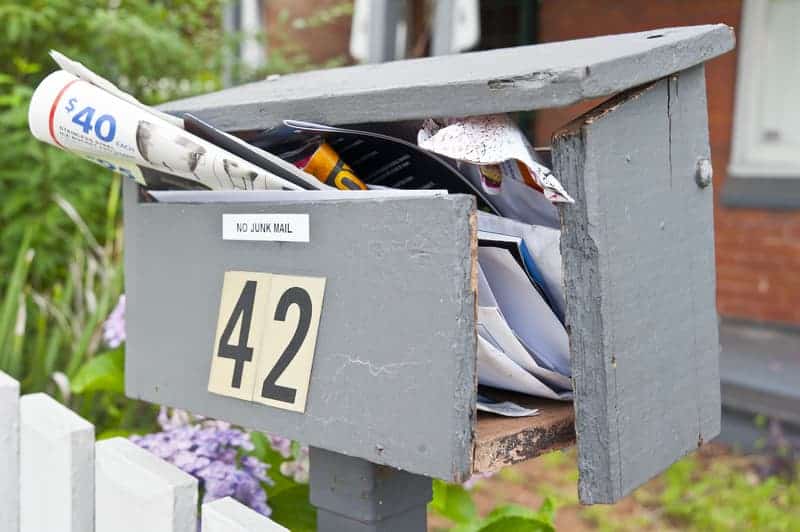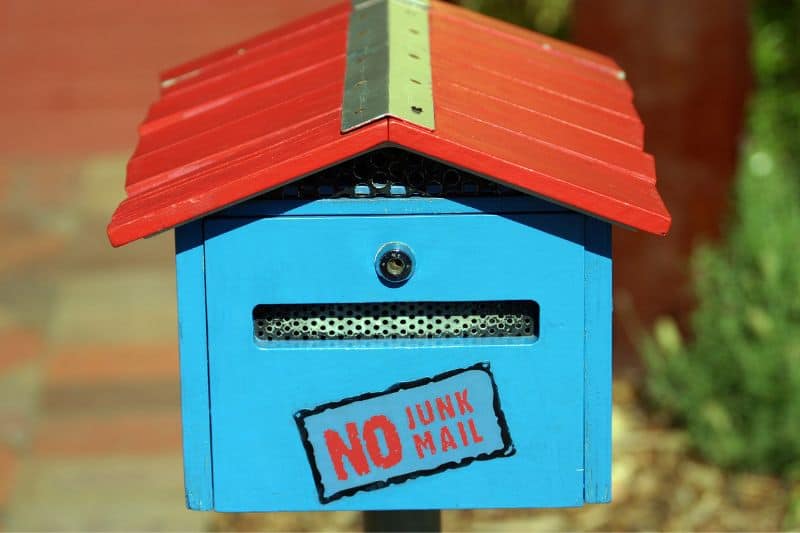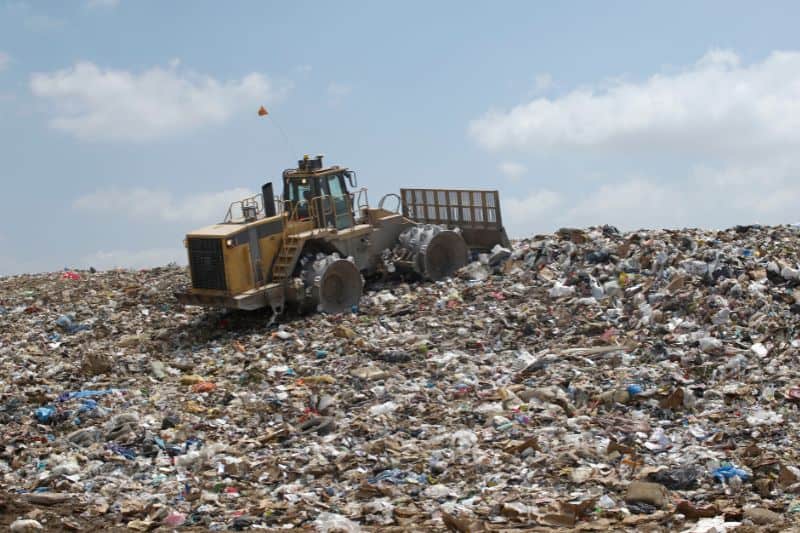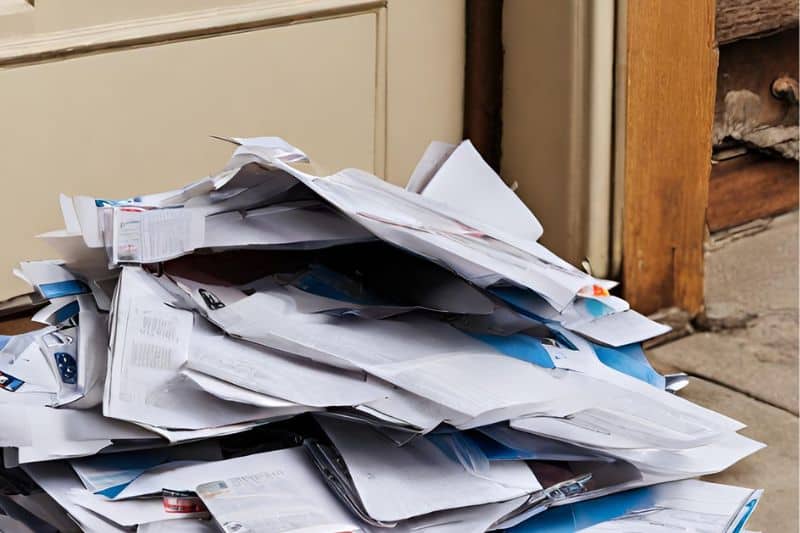Have you ever gone through a stack of mail and thrown half of it in the recycling? For you, that would be unsolicited and frequently undesired junk mail. You’re not alone if you’re wondering why so many advertisements, catalogs, and offers seem to be drawn to your inbox.
Not only is junk mail a minor annoyance, but it’s a vast industry. It has an impact on your everyday schedule as well as the environment more broadly. Continue reading to learn what constitutes junk mail and why keeping up with the latest developments is critical.
Read: 13 Awesome Green New Year Resolutions
What is Junk Mail?
Anything we receive in the mail we did not request is “junk mail,” or unsolicited mail. The phrase is used to describe both electronic and physical mail. Unsolicited communication is what junk mail is. Usually, you haven’t asked for these things, but they end up in your lap.
Consider commercials, credit card offers, catalogs, booklets with promotions, and requests for charity donations. These frequently appear in your mailbox because businesses have acquired or shared your data from past transactions or queries. Every week, junk mail is sent to tens of millions of people worldwide by direct mail and advertising companies.
Businesses use this mail to launch periodicals, investments, and new products. Neighboring businesses who deliver meals and local eateries also send unsolicited mail. Organizations write to individuals asking for money.
How Does Junk Mail Impact You?
As you go through your everyday mail, you may wonder how all the junk mail piling up in your mailbox affects you. Unwanted or spam mail, sometimes called junk mail, can adversely affect people and businesses. The following are a few typical effects:
Wasting Time
It takes time to manage or sift through junk mail. Dealing with unsolicited emails can be annoying, especially if your inbox is overflowing.
Decreased Productivity
Frequently handling junk mail can divert people’s attention from more crucial work, which lowers production levels.
Security Issues
Phishing attempts and harmful links can be found in specific junk mail, which could be dangerous. Clicking on these URLs may result in malware infections, financial loss, or identity theft.
Overloaded Email Filters
The volume of spam can occasionally overload email filtering systems, causing false positives where regular emails are reported as spam or false negatives where spam gets past the filter.
Email Fatigue
People who experience a regular barrage of unsolicited messages may become less receptive to all emails, even those that are crucial, as a result of their frustration.

10 Awesome Reasons To Opt Out of Junk Mail
Unsolicited advertising, sometimes called junk mail or direct mail, constantly floods our mailboxes, adding to the waste and pollution in the environment. Refusing this mountain of paper has several advantages for people and the environment.
In this post, we’ll explore ten awesome reasons to help you live a more sustainable, stress-free, and organized existence by opting out of junk mail.
1. Environmental Concerns
While throwing out junk mail we don’t want may seem useless, it has a significant environmental impact over time. The C.N.A.D. estimates that the amount of junk mail the average American household receives annually is equivalent to 1.5 trees, more than the 100 million trees all American households own.
Additionally, the C.N.A.D. discovered that only half of junk mail—22%—is recycled, with 44% being thrown away unopened. Although the firms that send junk mail are mostly to blame for this harm, we can all do our part to reduce needless waste.
Every piece of junk mail adds to energy use, water pollution, and deforestation during production. By choosing not to participate, you lessen the burden on the environment.
2. Privacy Matters
One crucial and strong argument for not accepting junk mail is privacy. Gathering and sharing personal data in connection with unsolicited advertising frequently puts people’s privacy in danger.
Sensitive personal information is frequently included in junk mail, particularly credit card offers, insurance solicitations, and other financial advertisements. By opting out, you can reduce the likelihood that unauthorized people or identity thieves will see these facts.
Cybercriminals can obtain helpful information for social engineering crimes using personalized junk mail. By choosing not to participate, you can lessen the chance of these assaults, which frequently use people’s personal information to their advantage.
3. Clutter Reduction
Feelings of tension and overload can be brought on by physical clutter. Refusing junk mail is one way you may take an active step in organizing your living area. This arrangement encourages calmness, making it easier to find what you’re looking for without rummaging through mountains of pointless paperwork and moving around your house.
Living areas that are aesthetically acceptable and visually appealing are achieved by removing clutter. Your house becomes a haven free from the distracting visuals of commercials, fostering a calm and healthy atmosphere.
Stress levels are frequently linked to clutter. An overabundance of things, especially junk mail, can be mentally disorienting. A proactive measure to reduce this source of stress and encourage a calmer, stress-free living environment is to choose not to receive junk mail.

4. Minimizing Sorting Time
It can take a lot of time to go through a stack of mail daily and separate the relevant documents from the junk mail. Reducing the time spent on this frequently tiresome and repeated task is achieved by opting out of receiving junk mail.
Junk mail requires attention and takes up time that could be spent on more valuable endeavors. People can simplify their daily schedules and devote more time to pursuits supporting their career and personal objectives by opting out.
Productivity is increased when there is less need to sort through mountains of pointless ads and promotions. People may concentrate on activities that help them grow personally, advance in their careers, or engage in recreational activities with fewer distractions.
5. Financial Benefits
Junk mail keeps filling your mailbox and causing unanticipated expenses beyond the frustration of sifting through unsolicited offers. Junk mail frequently has the intention of provoking impulsive buys.
By choosing not to participate, you protect yourself from the never-ending stream of alluring offers, which can help reduce impulsive buying. Consequently, this leads to more deliberate and thoughtful purchasing choices.
Businesses incur significant costs in creating, printing, and delivering junk mail; these expenses are eventually passed down to customers through higher pricing for goods and services. Businesses may change their marketing tactics in response to a collective consumer opt-out, which could result in lower total product costs.
6. Energy Conservation
Because the creation, shipping, and disposal of undesired mail add substantially to energy use, substantial evidence supports the decision to forgo junk mail. Paper is the main component of junk mail, and producing it uses much energy.
Several steps are involved in large-scale paper production, including logging, drying, bleaching, and pulping. By choosing not to purchase paper, you lower the total amount of energy needed in this long production cycle.
Junk mail is transported and distributed after it is produced to get to each mailbox. This has to do with how much gasoline cars use, which increases energy consumption and carbon emissions. By choosing not to receive junk mail, you can lessen the amount of transportation that is required.
7. Reduced Carbon Footprint
The main and convincing argument for not receiving junk mail is that it will lessen your carbon impact. People must consider the carbon footprint of their daily decisions because the manufacturing, delivery, and disposal of junk mail contribute to environmental degradation and climate change.
Junk mail printing uses chemicals and dyes that may have an adverse effect on the environment. By lowering the need for these products, opting out lessens the environmental impact of the manufacturing and disposal of printed materials.

8. Reduce Landfill Waste
One major factor in the ever-increasing problem of landfill trash is junk mail. Unwanted fliers, ads, and promotional materials eventually wind up in landfills when they get into garbage cans. There is a limit to landfills, and they take up precious ground.
You can actively help preserve these finite resources by choosing not to receive junk mail, allowing land to be used wisely for other essential uses. Methane, a strong greenhouse gas, is produced in landfills by decomposing organic materials.
Even though junk mail isn’t organic, its existence in landfills adds to decomposing waste. Reducing the amount of junk mail on paper helps mitigate methane emissions, aiding the fight against climate change.
9. Preserves Aesthetic Beauty
Unwanted correspondence might add to the phenomenon called “visual pollution.” Mailbox overdose of vibrant, frequently clumsily created ads detracts from the surrounding area’s charm.
A visually appealing neighborhood promotes a feeling of well-being and community pride. Refusing junk mail contributes to the aesthetic appeal of neighborhoods, making life there more pleasurable and peaceful.
Read: 11 Reasons Why Electric Cars are Bad For the Environment
10. Encourages Digital Alternatives
Digital communication techniques, such as email marketing and internet advertising, are more environmentally friendly than paper-based equivalents. They greatly lessen the effects of paper manufacture, printing, and shipping on the environment.
For companies, digital marketing is frequently more economical. Doing away with paper, printing, and shipping costs enables businesses to allocate resources more effectively.
Conclusion
Now that you know how junk mail affects the environment and the people who profit from its distribution, you can take appropriate action. Opting out and unsubscribing clears your inbox and sends a statement to the profit-making industries. Your choices have influence.
Cutting back on junk mail is a start toward a more significant change in marketing and consumption strategies, not merely a personal victory. Remember that every unwanted piece of mail you stop is a win for the environment and your mental health.






